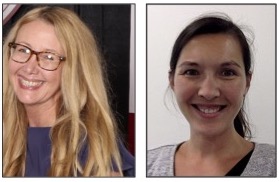The night before a big exam, college students may attempt to “study” by listening to their recorded notes while they fall asleep. They may feel that processing the information before sleep will help them remember it better the next day. A number of studies have shown this to be effective, even though it didn’t help me with my organic chemistry final exam.
Regardless, sleep has been shown to play a key role in learning and memory. Memory is often referred to by the stages of encoding (the initial learning process), consolidation (stabilizing the memory), and retrieval (accessing the stored information). It is thought that sleep is particularly helpful in the consolidation process, as it helps organize and solidify the learned information. Lately, many have suffered from a lack of sleep related to the COVID-19 pandemic—a problem known as coronasomnia—and I hope this hasn’t put a damper on the amount of learning during lockdown periods.
Speech motor control is one type of learning that is very complex and requires coordination across multiple levels of organization and planning. Theories of speech motor control discuss the relationships between the auditory targets of speech and the articulator movements needed to produce those targets, and how these relationships become automatic behaviors over time. While many have attempted to explain how we learn these behaviors, most theories do not address this issue from a memory-based framework.
Anne van Zelst and Sayako Earle (pictured below) suggest that we consider memory as a factor in speech motor learning in their paper published in Psychonomic Society journal Psychonomic Bulletin & Review earlier this year. In this paper, they call on researchers to examine speech through a memory lens.

In its most basic form, speech motor learning involves two general types of learning.
- Movement-based learning encodes the appropriate articulator movements that are needed to produce the sounds of a word. This type of learning would recruit the procedural memory system because it gives us the “how-to guide” of speech.
- Goal-based learning encodes the meaning of a word and its appropriate use in an utterance. This type of learning would recruit the declarative memory system because it contains a conscious message that we actively store and retrieve.
One example of this distinction can be seen when you silently talk to yourself. You’re clearly thinking with words and phrases, and you’re consciously aware of this inner speech happening. That’s declarative memory doing its job. When you start speaking aloud, the words come out without much effort or awareness because producing the words uses procedural memory retrieval.

van Zelst and Earle provide a review of studies that show how memory consolidation helps to establish a motor plan in general skill learning. They point out that after learning a motor skill, periods of wakeful rest can help enhance the behavior, but periods of sleep may enhance the behavior even more. Movement-based learning thrives on massed practice (lots of repetitions), so this kind of learning likely benefits from a wakeful rest state. Goal-based learning develops over distributed practice, and it performs better following a period of sleep. This distinction suggests that speech motor learning may require both wakeful rest and sleep for ultimate enhancement.
Based on the motor learning literature, the authors propose a time course of memory consolidation that could be responsible for developing speech-motor representations. This time course has two pathways: automatic consolidation of speech movements during wakeful rest and generalized consolidation of speech goals during sleep.

The authors suggest that the learning of speech motor representations may use multiple memory mechanisms, which engage both the conscious and unconscious learning circuits. This theory makes a lot of sense, but it has yet to undergo empirical testing. The reason is that it is difficult to separate speech motor skills into discrete representations that exist on different time scales; speech is incredibly complex and the various levels of representations are intricately intertwined.
Future work could focus on designing treatment protocols with this theory in mind. Speech-language intervention or second language learning could be scheduled close to a period of sleep to facilitate faster progress. Practice could be distributed over time for goal learning or lumped together to optimize movement learning. The predictions outlined in this article provide an excellent stepping-stone for novel theoretical and applied research in speech motor learning, and the authors call on researchers to advance the framework in this exciting direction. But for now, I’m going to listen to a Rosetta Stone language lesson and take a nap.
Featured Psychonomic Society article
van Zelst, A. L., & Earle, F. S. (2021). A case for the role of memory consolidation in speech motor learning. Psychonomic Bulletin & Review, 28(1):81-95. https://doi.org/10.3758/s13423-020-01793-w
